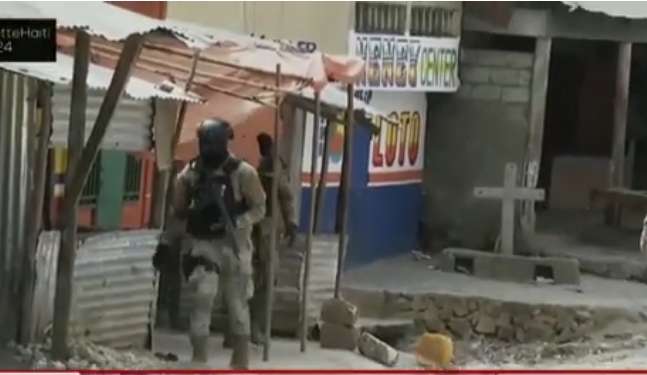Arson at Abandoned Haitian Hospital Attributed to Gang Activity
The Devastating Impact of Gang Violence on Healthcare in Haiti: The Burning of the State University Hospital
Haiti, a nation grappling with deep-seated political instability and socioeconomic challenges, has been further plunged into crisis by the escalating violence perpetrated by armed gangs. The latest act of brutality, the arson attack on the State University Hospital, also known as "Lopital Jeneral," underscores the devastating consequences of gang violence on the already fragile healthcare system. This hospital, the largest medical center in the country, serving as a lifeline for countless Haitians, was set ablaze by an armed group affiliated with the "Viv Ansanm" coalition, leaving the nation reeling from the loss and further jeopardizing the health and well-being of its citizens.
The attack on Lopital Jeneral is not an isolated incident. It follows a pattern of escalating violence against healthcare facilities in Haiti. Just two months prior, the hospital was targeted by gunmen, resulting in the tragic deaths of two journalists and injuries to four others. In December 2024, Bernard Mevs Hospital, another crucial medical facility, suffered a similar fate, being looted and burned by gangs. These attacks demonstrate a blatant disregard for human life and the fundamental right to healthcare, highlighting the urgent need for effective measures to address the escalating gang violence and protect vital healthcare infrastructure.
The consequences of these attacks are far-reaching and devastating. The destruction of Lopital Jeneral represents a significant blow to Haiti’s healthcare system, leaving a void that will be difficult to fill. The hospital served as a critical hub for medical care, providing essential services to a large segment of the population. With its destruction, access to healthcare has become even more limited, particularly for vulnerable populations who rely on the hospital for life-saving treatment. The loss of medical equipment, supplies, and trained personnel further exacerbates the challenges faced by the healthcare system.
The location of the hospital in a gang-controlled area adds another layer of complexity to the situation. Situated on Monseigneur Guilloux Street, in a dangerous section of downtown Port-au-Prince, the hospital was forced to close last year due to the escalating gang activity. The "Viv Ansanm" coalition, responsible for the recent attack, has exerted control over this area, making it virtually inaccessible and further highlighting the challenges of providing healthcare in a conflict zone. The insecurity and violence prevent medical personnel from reaching those in need and deter patients from seeking medical attention, putting countless lives at risk.
The arson attack on Lopital Jeneral and the ongoing violence against healthcare facilities in Haiti demand immediate and decisive action. The Haitian government, with the support of the international community, must prioritize the protection of healthcare infrastructure and ensure the safety of medical personnel. Efforts must be intensified to disarm and dismantle armed groups, address the root causes of gang violence, and restore stability to the affected areas. Furthermore, investment in rebuilding and strengthening the healthcare system is crucial, ensuring access to essential medical services for all Haitians.
The international community plays a vital role in supporting Haiti’s efforts to address the crisis. Providing financial and technical assistance, strengthening security cooperation, and promoting dialogue and reconciliation are essential steps towards creating a stable and secure environment. Furthermore, supporting the training and development of Haitian healthcare professionals and providing essential medical supplies and equipment will help rebuild the shattered healthcare system. The international community must stand in solidarity with Haiti during this challenging time and work towards a long-term solution that addresses the root causes of the crisis and promotes sustainable development and peace.
Share this content:












Post Comment